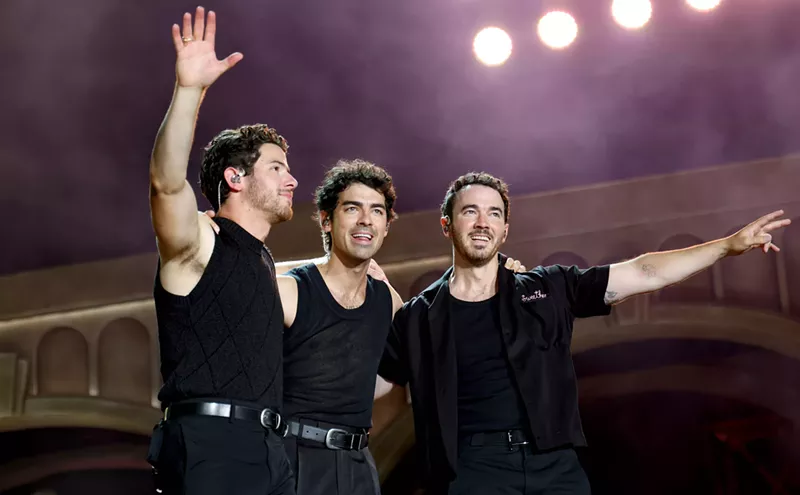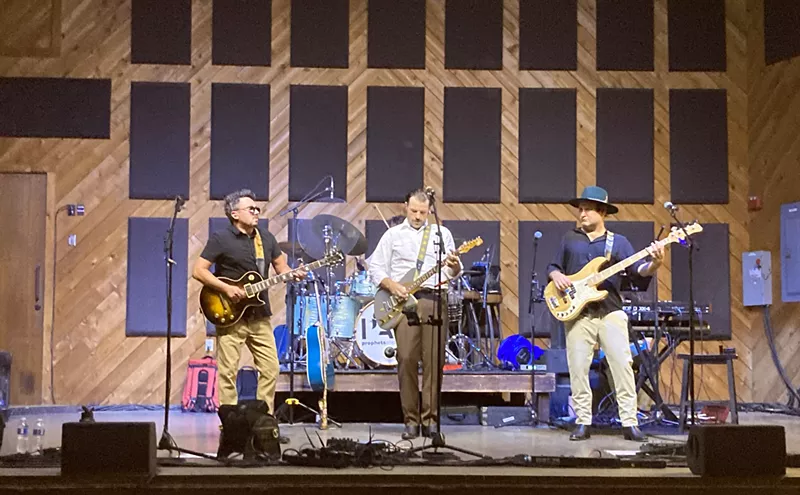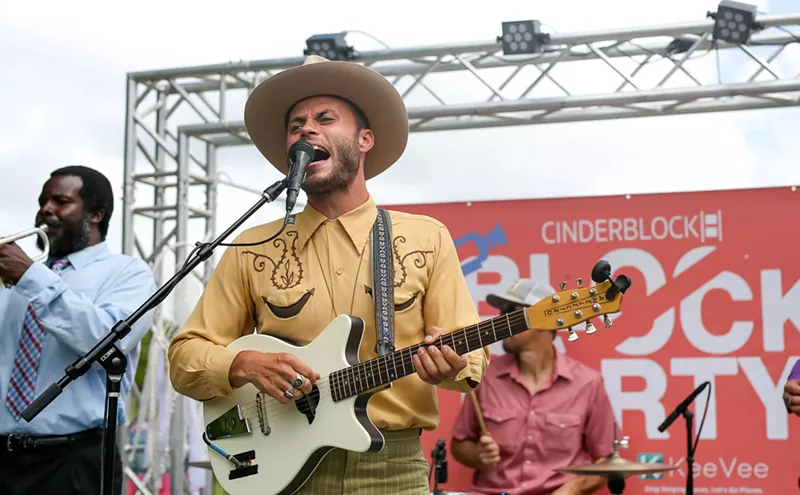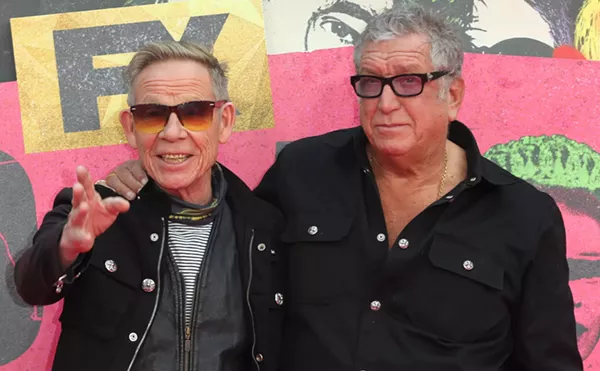For over four decades, England's Judas Priest has been making one hell of a heavy metal racket. Formed in 1969, the band didn't find widespread success until the late '70s and early '80s. But classic metal songs such as "Living After Midnight" and "Breaking the Law" (both off the seminal album British Steel) opened the floodgates, and for the better part of a decade, Judas Priest were one of the top metal acts in the world.
Much of that success can be attributed to the band's second lead singer, one Rob Halford. Halford's amazing set of pipes helped Judas Priest gain fans in the mainstream rock market and the band's breakthrough hit, 1982's "You Got Another Thing Coming," demonstrated Halford's power and range.
Late in the '90s, Halford decided to reveal his homosexuality and, to the surprise of many, most metal fans couldn't have cared less.
Speaking from Houston and on his way to North Texas to perform on Sunday at the Allen Event Center, Halford talked to DC9 at Night about Judas Priest's amazing history and the band's likely future.
Is this really going to be the final tour for Judas Priest?
No, it's not. I wish there was another word in the dictionary. It's not goodbye. It's just farewell. We really want to keep going. We've been going at it for forty years. That's our strong suit and it shows the passion of the band. We're just going to cut back on those big world tours. We're going to put a preservation order on what we do. We're still going to be doing shows and recording music. We have started recording a new album.
The band has sold over 50 million albums. In the early days, could you ever conceive of such worldwide success?
By today's standards, that is an amazing number. It is an endearment given to us by our wonderful fans. We've always had the best fans in the world and it is the fans that will always look after Priest. They keep buying the records and coming to the shows. That's the reason we are still here. It's a combination of the songs that we have made and the band's supporters.
Years ago, MTV named Judas Priest as the second best heavy metal band of all time. Only Black Sabbath was ranked higher. Are you OK with that?
Yes, I am OK with that because we are good buddies with Ozzy and Geezer and Tony and Bill. We have known each other forever. We're even from the same neighborhood. We'll take being second to them. Both bands have had so many extraordinary times together.
Why isn't [guitarist] K.K. Downing playing on this tour?
That was a surprise and a shock, obviously. We just had to respect his personal position that K.K. had some other things to do. Now we have a phenomenal guitar player named Richie Faulkner taking up that spot on the stage. He is tearing it up, night after night. He has a sensational stage presence as well as being a great guitarist. We've been all over the world with him and the reaction from fans has been amazing.
1980's British Steel was a real turning point for the band, especially in America. What about that album appealed specifically to the American audience?
Well, it was 1980 and it was the start of one of the greatest decades of heavy metal music. Everything changed then. If you look at rock and roll, the history of rock and roll, the beginning of the MTV decade, this was a very special time. At that point, things were just breaking big for Judas Priest. We went into the studio with a handful of songs. We didn't have a lot of material. The band had developed a special bond after working on the previous records. We were red hot. We worked with a great producer, Tom Allom, who really pushed us. He wanted us to keep things simple and direct. He wanted us to be very straight forward with our arrangements. That's how those riffs on "Breaking the Law" and "Living After Midnight" came about. When you have a song that is compact and tight and has a melody, than radio wants it. That's what happened with "Living After Midnight" becoming so successful in America. That is still one of the seminal, rock and roll party songs. When we crank that out towards the end of the show, the crowds go crazy.
It wasn't long after that album came out that Judas Priest performed at Live Aid. Were you surprised to be invited to play that event?
Yes, we were surprised. But any chance we get to get up on stage and play music, we will always go for it. Live Aid was a tremendous show. But of course, Live Aid was more than that. It was a very important cause. It was an amazing thing for Bob Geldof to organize. There are still a lot of very hungry people around the world. It looks like that may never end. There are still people here in America who are going to bed without food in their bellies.
How scary was the motorcycle accident you had on stage in Toronto in 1991?
These things happen on stage. We're not the first rock and roll band to have an accident on stage. That's just the way it worked out that night. I came out on my Harley and this drum riser got in my way. I banged into it. It was a heavy metal impact and I was thrown off the bike. We were playing "Hell Bent for Leather." You get up and shake it off and you carry on. That happened again in South America, I think. I was hurdled across the stage. I went for a sprawl.
That was around the same time as the infamous "Subliminal Message" trial. Did you really say that the hidden "Do it" message that the parents claimed was in one of your songs was really a call to buy more albums?
We said that to the judge. We said that if we were going to put subliminal messages on our records, it would be ones saying, "Buy more Priest albums." We weren't trying to make light of a very serious situation [the double suicide deaths of two young men in Nevada]. We just wanted to point out that music is not the reason people do bad things.
Was there any pressure from a record label or a management agency on you not to reveal your homosexuality in 1998?
No, it was a personal decision. I've always respected the fact that my band and my management and my label kept their hands off that very private affair. When any of us steps forward and makes such an announcement, it's a very personal choice. Some of us choose to live a life under the radar for different reasons. For me, it was a very empowering thing to set myself free. The biggest thrill was the acceptance of my fans more than anything else. The guys in the band knew. The families knew. The general heavy metal fan did not know. I didn't know how the fans would react. But you have to get your own house in order. Then, you can look at things around you more clearly.
Judas Priest performs with Thin Lizzy and Black Label Society on Sunday, October 16, at the Allen Event Center.












